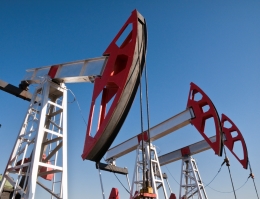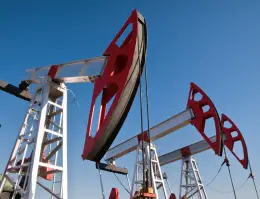Matthew Jurecky, Head of Oil & Gas Research and Consulting for GlobalData, Will Scargill, Senior Analyst for GlobalData, and Carl Fuller, Analyst for GlobalData.

In October 2016 a Chadian court ordered a consortium led by ExxonMobil to pay a fine of US$74 billion for allegedly underpaying royalties on their operation in the country and the parties have entered into negotiations over the issue. The fine relates to the statistical royalty on exports on production from two licenses, held under concession agreements issued in 1988 and 2004, which currently account for over 40% of production in the country. Production operations have been ongoing since 2003 from seven fields from which the court alleges the consortium has underpaid US$800 million in royalties. The disagreement stems from a past arrangement, which the government claims is invalid, to pay a reduced rate of export royalty instead of the usual 2% rate.
The hydrocarbon industry in Chad is an important sector for state income, which prior to the fall in oil prices in 2014 represented more than 60% of state revenues. The recent sustained low price environment, coupled with the expectation that production will begin to decline into the medium term, has led to severe budgetary problems for the government and pressure to raise additional revenues, with receipts falling by more than 50% from 2014 to 2015. The position of the upstream sector as a major revenue source leaves the industry exposed in times of economic difficulty to attempts to increase state take at the expense of contractors holding existing contracts and those looking to negotiate for new licenses.
The forecast of fiscal take and production highlights the disconnection between the two as the price fell from 2014. Even as production has increased, government receipts fell considerably up to 2016, after which they begin to recover as total production from existing fields began to plateau. Production from CNPC’s planned Daniela Complex, which unlike the Exxon operated concession agreements is licensed under a production sharing agreement, offsets the decline of existing fields. Fiscal take is forecast to reach a post-crash peak in 2021 as a result of the new production, but this is insufficient to offset losses from the low oil price despite production forecast to match the historic peak of 180 thousand barrels of oil equivalent per day (mboed). Beyond 2021 declining production from current and planned fields will continually erode government income from the upstream sector unless there is upward movement in the oil price over the medium term or new large projects are brought online.
Over the longer term, a strategy of increasing state take may create problems as the fiscal regime loses competitiveness. The undiscounted state take for a comparative development scenario is currently in line with regional peers under the older concession regime and the current production sharing framework. Any significant upward movement in the state take may reduce interest from foreign investors and undermine exploration efforts in the country, possibly adding to budgetary pressures in the future.
Past frictions between the government and operators are similar to the current case, where the government has imposed strong measures in response to alleged infractions by licensees. A dispute in 2006, centered on the interpretation of a tax benefits agreement with Petronas and Chevron, led the president to expel the companies from the country. The matter was only settled once the companies agreed to pay back more than US$280 million and the tax agreement was invalidated. More recently, CNPC had a license cancelled after they were issued a US$1.2 billion fine for alleged environmental violations in 2013. This issue was only resolved after a reduced fine of US$400 million was paid and the license terms were renegotiated, which increased the liquids royalty rate by 1.75% and granted a 10% equity share to the state for current producing fields and 25% for future discoveries.
For a full version of this analysis, please visit the GlobalData Energy website.
The hydrocarbon industry in Chad is an important sector for state income, which prior to the fall in oil prices in 2014 represented more than 60% of state revenues. The recent sustained low price environment, coupled with the expectation that production will begin to decline into the medium term, has led to severe budgetary problems for the government and pressure to raise additional revenues, with receipts falling by more than 50% from 2014 to 2015. The position of the upstream sector as a major revenue source leaves the industry exposed in times of economic difficulty to attempts to increase state take at the expense of contractors holding existing contracts and those looking to negotiate for new licenses.
The forecast of fiscal take and production highlights the disconnection between the two as the price fell from 2014. Even as production has increased, government receipts fell considerably up to 2016, after which they begin to recover as total production from existing fields began to plateau. Production from CNPC’s planned Daniela Complex, which unlike the Exxon operated concession agreements is licensed under a production sharing agreement, offsets the decline of existing fields. Fiscal take is forecast to reach a post-crash peak in 2021 as a result of the new production, but this is insufficient to offset losses from the low oil price despite production forecast to match the historic peak of 180 thousand barrels of oil equivalent per day (mboed). Beyond 2021 declining production from current and planned fields will continually erode government income from the upstream sector unless there is upward movement in the oil price over the medium term or new large projects are brought online.
Over the longer term, a strategy of increasing state take may create problems as the fiscal regime loses competitiveness. The undiscounted state take for a comparative development scenario is currently in line with regional peers under the older concession regime and the current production sharing framework. Any significant upward movement in the state take may reduce interest from foreign investors and undermine exploration efforts in the country, possibly adding to budgetary pressures in the future.
Past frictions between the government and operators are similar to the current case, where the government has imposed strong measures in response to alleged infractions by licensees. A dispute in 2006, centered on the interpretation of a tax benefits agreement with Petronas and Chevron, led the president to expel the companies from the country. The matter was only settled once the companies agreed to pay back more than US$280 million and the tax agreement was invalidated. More recently, CNPC had a license cancelled after they were issued a US$1.2 billion fine for alleged environmental violations in 2013. This issue was only resolved after a reduced fine of US$400 million was paid and the license terms were renegotiated, which increased the liquids royalty rate by 1.75% and granted a 10% equity share to the state for current producing fields and 25% for future discoveries.
For a full version of this analysis, please visit the GlobalData Energy website.
 Menu
Menu
 ExxonMobil fine highlights Chadian budget woes and challenges for upstream operators, says GlobalData
ExxonMobil fine highlights Chadian budget woes and challenges for upstream operators, says GlobalData
















